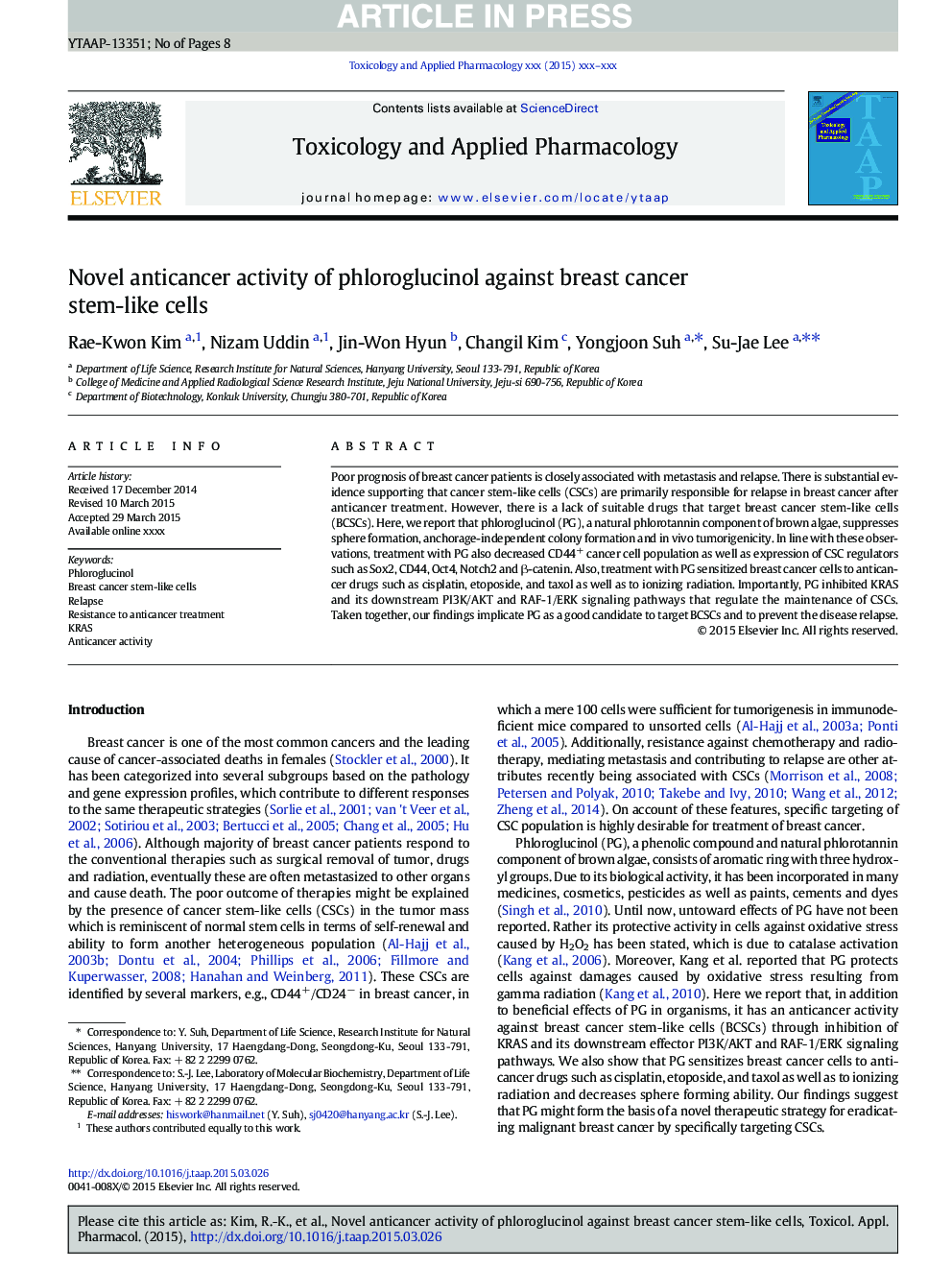| Article ID | Journal | Published Year | Pages | File Type |
|---|---|---|---|---|
| 5846011 | Toxicology and Applied Pharmacology | 2015 | 8 Pages |
Abstract
Poor prognosis of breast cancer patients is closely associated with metastasis and relapse. There is substantial evidence supporting that cancer stem-like cells (CSCs) are primarily responsible for relapse in breast cancer after anticancer treatment. However, there is a lack of suitable drugs that target breast cancer stem-like cells (BCSCs). Here, we report that phloroglucinol (PG), a natural phlorotannin component of brown algae, suppresses sphere formation, anchorage-independent colony formation and in vivo tumorigenicity. In line with these observations, treatment with PG also decreased CD44+ cancer cell population as well as expression of CSC regulators such as Sox2, CD44, Oct4, Notch2 and β-catenin. Also, treatment with PG sensitized breast cancer cells to anticancer drugs such as cisplatin, etoposide, and taxol as well as to ionizing radiation. Importantly, PG inhibited KRAS and its downstream PI3K/AKT and RAF-1/ERK signaling pathways that regulate the maintenance of CSCs. Taken together, our findings implicate PG as a good candidate to target BCSCs and to prevent the disease relapse.
Related Topics
Life Sciences
Environmental Science
Health, Toxicology and Mutagenesis
Authors
Rae-Kwon Kim, Nizam Uddin, Jin-Won Hyun, Changil Kim, Yongjoon Suh, Su-Jae Lee,
